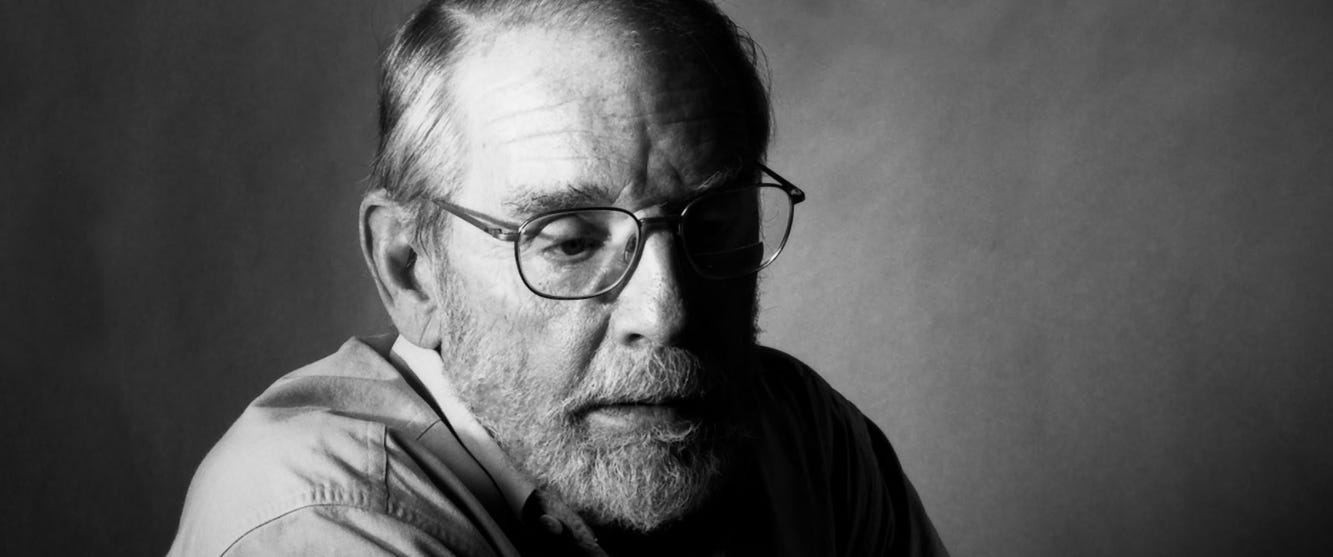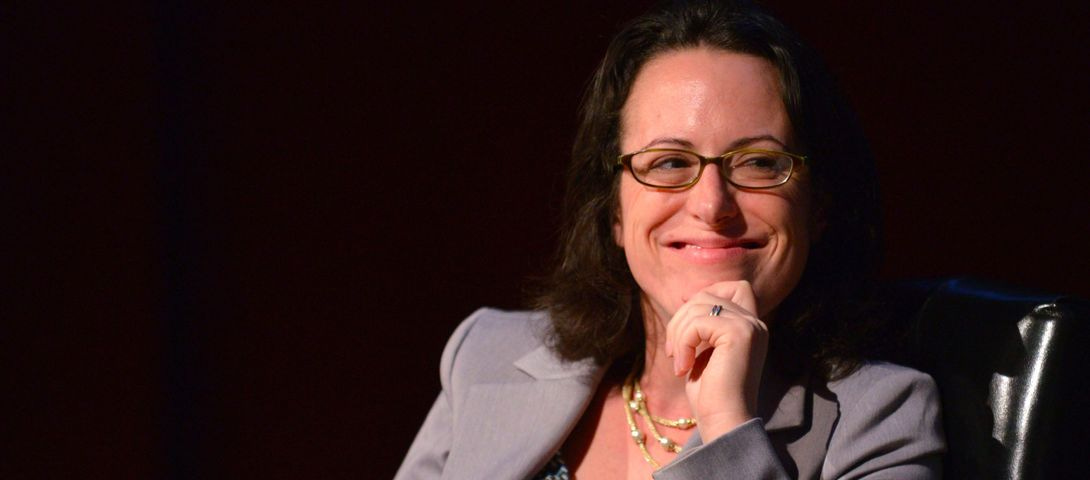What Do I Do for a Living? Confronting an Identity Crisis. (1/2)
The authority on mixternal communications
What It Means When I Can’t Explain Myself
According to the United States government my job isn’t real.
The word “communications” appears 75 times in the Standard Occupational Classification Manual, the U.S. Bureau of Labor Statistics guide that codifies Americans' myriad jobs. Among the professions in my field:
public relations manager is a profession (job code 11-2032)
public relations specialist is too (27-3031)
marketing (11-2000) and HR (11-3120) are accounted for
So is baseball umpire (27-2023), arborist (37-3013), and sewer pipe cleaner (47-4071).
But do you know what isn’t a profession, according to the Bureau?
employee communications manager or specialist is not a profession
same goes for internal comms manager and specialist
ditto for executive comms
even the generic catch-all “corporate communications” isn’t classified
Even though some people teach communications in college (25-1122: Communications Teachers, Postsecondary), apparently nobody goes on to do that work, unless it’s in public relations.
My role as a mixternal comms storyteller is even more esoteric, as I straddle both sides of the comms aisle. For nearly 15 years I’ve been ghost/writing, editing, and publishing articles and multimedia content that support “corporate narratives” for internal and external channels: intranets, newsletters, town halls, digital signs, blogs, video channels, and social media.
For nearly 15 years I’ve been doing something to earn a paycheck, but corporate storytelling, as you can guess, is also not classified by the U.S. government as a profession and mixternal isn’t even in the dictionary.
All this has me wondering:
If the government doesn’t officially count my role and my preferred characterization is a made-up word, how can I expect to explain myself to civilians?
And, more troubling, if I can’t easily describe my contribution to the economy and society, can my position be explained away?1
So, what do I do for a living? The answer is more than fodder for painful small talk; it’s at the heart of an existential crisis.
Four Dreaded Words
What do you do? are four of the most bracing words an employee comms professional can hear. I pray the question doesn’t come up at a party, among friends, or anywhere a human might talk to me. I have no easy answer to the seemingly simple query. I’d prefer it if I were asked why is the sky blue?
I polled three of my closest friends and learned they have no idea what I do to earn a paycheck. Surprisingly(!) they know the field—you do communications, right?—but when I prod them to describe what I do, the answer is a collective ¯\_(ツ)_/¯.
The children of my peers are equally lost as to what their parents do. [My older son] believes that I meet with the whole world when I am on a call, says an IKEA comms pro. When I am on a call and speaking English he says, “Mom is having a meeting with the whole world.” This also sounds like something salespeople, customer service agents, and United Nations staffers do for a living.
Parents are equally clueless. My father probably thinks I manage the company website, jokes an internal comms-rade at Coach. One of our profession’s more prominent voices says, My mom thinks I just talk all the time. Which is pretty accurate, honestly.
When one of my colleagues in the tech industry is asked what she does for a living, she says, I’m in PR—even though she’s in internal comms. It’s just easier, she says. Ironic, because another colleague—who’s in PR in the tech industry!—tells people I work in the tech industry. It's so much effort to explain PR.
If only it was as straightforward as I’m a grade school history teacher or I’m an architect or I’m a neuro-micro-anthro-medeival-pharmacology-forensics expert.
When assaulted by what do you do? I often default to I’m in corporate2 communications. If that magically doesn’t end the conversation and I get a follow-up—what does that mean?—I’m flummoxed. I used to fall back on a bland mission statement: I inform, enable, and inspire employees and external audiences about a Company. 😶
That serving of discount vanilla ice cream still didn’t answer the question, what do you do? Like, all day, what are you actually doing? Oh to be a carpenter…
Am I… a Writer?
Someone once described me as “a writer.” I demurred. John McPhee, who at age 92 has published 34 books (so far) and scores of essays, is a capital W Writer. “I’m a writer who writes about real people in real places,” he told The Paris Review. “End of story.”
Technically I also write about “real people” (employees are people!) in “real places” (workplaces exist!), but only to make a person, team, or company look good. McPhee can write about anyone, including people who hate their job. Comms pros will never have that luxury—unless we want to be out of a “real paycheck.”
The Writer label distinguishes McPhee’s calling from others who make their living with words. Vinay Reddy, for example, is Joe Biden’s speechwriter. Noah Baumbach is a screenwriter and Carole King is a singer-songwriter. David Sedaris self-describes as a humorist. Elizabeth Strout is a novelist and Peggy Noonan is a columnist. Marilynne Robinson is an author and an essayist. There are also journalists and bloggers and poets and editors and lyricists and playwrights and…
What is it, then, that would make me—a comms pro—a writer? Is it the fact that much of my time is spent, yes, writing internal and external articles, video scripts, and newsletter snippets? Is writing “corporate propaganda” considered writing? Would any of the people mentioned above call me a writer?
In January I threw caution to the wind and tried on the loose-fitting clothes of a writer. During a break while serving jury duty3, a fellow juror—a personal chef (35-2013: Cooks, Private Household)—asked me what I do for a living. I didn’t feel like getting into the whole corporate comms thing, so I said (meekly, I might add), I’m a writer. This piqued the interest of four others who suddenly looked at me with raised eyebrows. I wasn’t expecting the next most obvious question, from a farmer (11-9013: Farmers, Ranchers, and Other Agricultural Managers), what do you write?
The garments fell and the emperor was shown to be nude. I mumbled something about writing about the semiconductor industry, which was met with perplexed looks. You know, microchips?4 Talk about throwing ice water on a hot topic. The conversation moved on. Thank goodness, because how would I even explain Mister Editorial to citizens?5
“Writing is something you do alone,” said John Green, author of The Fault in Our Stars. “It's a profession for introverts who want to tell you a story but don't want to make eye contact while doing it.” I identify with Green’s conception of a writer. I very much like being left alone to do my work.
Am I… a Storyteller?
My work is multimedia and multichannel, just like that of storyteller Neil Gaiman, who has published graphic novels and comics, regular novels, short stories, screenplays, poetry, and video game scripts. (OK, maybe not just like Gaiman.) I took Gaiman’s MasterClass, aptly titled “The Art of Storytelling,” and made copious notes; their application to what I do for a living is dubious. Samples:
Appeal to the senses. Sound. Smell. Eyes. Touch.
find a room with strangers in it and write a story about what happens to them when a catalyst occurs
break down every scene and event into a clash of characters wanting things...when they want something different, conflict occurs.
Everyone and their mother seems to be a storyteller these days. It’s not just folks in our sister professions of Marketing and Social Media who are claiming the mantle.6
When the son of one of a podcaster-slash-venture capitalist-slash-college professor asked him what he did for a living, the prof thought hard and said, I’m a storyteller.
Cybersecurity experts are encouraged to become storytellers to get their warnings to stick.
3M thinks scientists should be storytellers.
I watched a webinar featuring a former project manager at Google X. Her lofty title? Chief Storyteller. 🤦♂️
I am in charge of mixternal storytelling7 for my company (think intranet, blog, YouTube). My team publishes the usual employee Q&As, team highlights, product behind-the-scenes, award rah-rahs, and CTA-laden articles that support the company’s objectives. (I like my job.) But are these publications stories? Similarly, I look over the ~250 articles I’ve written for Mister Editorial and don’t see any storytelling. (This excerpt might be the exception.)
Between the thousands of pieces of mixternal corporate content and hundreds of Mister Editorial articles, there ain’t much storytelling. So I’m not a storyteller, at least not in how we think Gaiman, Salman Rushdie, J.K. Rowling, Scheherazade, and Moth performers tell stories.
When asked in an interview with 60 Minutes how he wants to be remembered, Rushdie replied, “As a novelist.”
If someone asks me how I want to be remembered, I probably won’t say, “as a corporate comms storyteller.”
Am I… a Journalist?
Some of journalism’s thrilling experiences—getting scoops, investigative pieces, and speaking truth to power—are absent from my reality. Indeed, our profession reinforces company lines, regardless of where personal opinions or truth lie. (See above: unless we want to be out of a “real paycheck.”)
Can you imagine running a news story on your intranet about why the sales department keeps missing targets or recapping a lawsuit brought against the company?
Nevertheless, when I asked my mother what she thought I did for a living she said, you’re a reporter of some kind, right? She’s not far off. My career has entailed “reporting” on what happens at Company, which means I have much in common with reporters, like writing copy on a deadline, chasing a lead, writing the other kind of lead, inventing attention-grabbing headlines, sourcing photography, and lots and lots of writing.
But there are also a lot of “buts.” Among them:
Listening and Patience: Like journalists, I must listen closely to what people say. I need to know the right questions to ask and I need to know when to be quiet and let my subjects do the thinking and extemporaneous talking.
But unlike journalists, I’m not always seeking a capital T truth; I’m often looking for answers supporting a “company narrative.”
And unlike journalists, my interviewees get to revise their quotes and suggest edits to the story.
Persistence: Like journalists, I need to keep calling, emailing, and messaging people who have the information, quotes, leads, assets, and documentation for my story. At work, storytelling is nobody’s priority but my own. My coworkers in far-flung places and departments have their own To Do lists; nine and a half times out of 10 talking to a comms person about an intranet story isn’t on the list.
Unlike journalists, I can’t publish a story that includes lines like “So and So was unavailable for comment” or “we reached out to Such and Such department multiple times and received no response” or “as this article went to press [Executive] had not replied to repeated inquiries.”
Nope…I need to pester, badger, and beg for quotes and information (and reviews! oh the reviews…) and if it causes my work to be delayed, so be it.
Building Relationships: Reporters rely on people’s trust and that’s the same with me. I’m privileged to get “inside scoops” and advance notice on company projects and events. The only way I keep getting these head starts is to keep my mouth shut when talking to coworkers and not writing about the juicy details I’m privy to.
Unlike journalists, I don’t get a reputation for publishing breaking or exclusive news from leaked information, anonymous tips, or “you didn’t hear it from me” phone calls from blocked numbers.
Unlike journalists, I am not an outlet for speaking truth to power. I’m a trusted ally for hewing to the company line.
The differences don’t end with the litany of reporter-like activities. Maggie Haberman’s coverage of Donald Trump for The New York Times is a curse and a salvation. Her work has brought fame, recognition, and challenges—none of which shadow my work: angry letters to the editor, social media trolls, doxing, and other acts of retribution. Thankfully my work is neither cursed nor blessed, as all my articles play it straight and half of my effort is hidden behind a firewall.
I’ve worked with several ex-journos in my career, very few of whom—if any—would say in their comms role they are journalists. With bitterness in their spittle, I’ve heard more than one self-describe as a “corporate hack.” After all, when was the last time a journalist had to get “review” and “approval” from 14 people for a 400-word article that 1,000 people—if they’re lucky!—will read before it forever disappears into a black hole?
The journalist Sebastian Junger says there are two kinds of writing—fiction and nonfiction—and that all nonfiction writing is journalism (~46:45). Junger has never written articles destined for an intranet.
***
In part two I continue the self-examination of what I do for a living and approach something of an answer.
If an intranet article falls in the forest and no one is around to hear it…
“Corporate” is often a necessary qualifier, as someone who works in telecommunications can rightfully claim I work in communications, something I learned when I was once introduced to someone I thought was in my field. The U.S. Bureau of Labor Statistics also backs up this claim.
While we all agreed that he did, in fact, strangle the victim, we unanimously deemed it self-defense. Not guilty, Your Honor.
This isn’t even accurate. I work for a company that builds wafer fabrication equipment or, as we tend to elegantly explain, “we make the tools that make the chips.” But if you think telling people you write about semiconductors is a wet blanket, try telling them you write about wafer fabrication equipment.
Indeed, I don’t explain Mister Editorial to anyone. My family has no idea this thing exists. Only one friend knows, and that’s because he saw it in passing on LinkedIn. If you’re outside the comms world Mister Editorial is difficult to explain because I first have to describe what I write about, which begs explaining what my dear readers do for a living, which brings us back to the beginning of this essay. Sorry, but I’d rather talk about Game of Thrones, which I haven’t even seen.
I sure as hell am not calling myself a “creative” 🙄.
The American Heritage Dictionary defines “storyteller” as:
One who tells or writes stories.
One who relates anecdotes.
Informal: One who tells lies.
🤔 Given the corporate context of internal and external comms pros, that third definition is provocative.
Thank you for being a part of Mister Editorial.
Read past editions of here. Refer colleagues and earn rewards using your personal referral link. Send feedback to editorshaun@gmail.com.
Disclaimer: Besides running Mister Editorial I am the editor-in-chief of Digital Publications at Lam Research. The views in this newsletter are my own.





